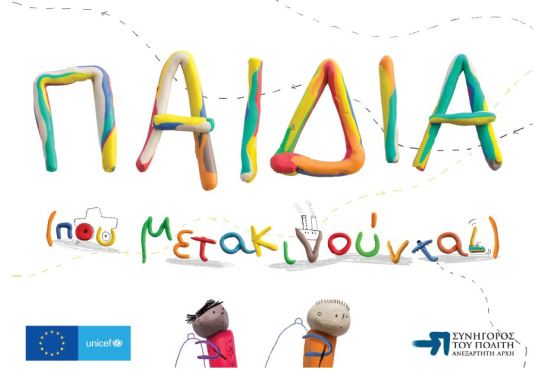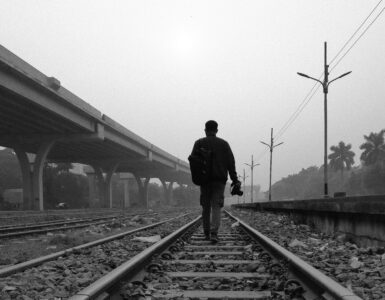Theoni Koufonikolakou, Deputy Ombudswoman for Children’s Rights and the former elected Chair of the European Network of Ombudpersons for Children (ENOC) ,answers the Migratory Birds’ questions regarding the rights of the child, but also the improvement of the child’s position in society.
What is the biggest challenge you have faced so far in your career?
I feel that the state and society do not give the value they should to childhood and this makes our work very difficult. It seems that the “adult world” cannot easily understand the anxieties and perspective of children and still treats them as passive objects of protection instead of subjects of rights.
We may have grown up forgetting what it was like for us to be told “don’t talk”, but we must not overlook that children have their own opinion and expression and that taking them into account is extremely important for our present and future.
Do you think that society has enough information about the rights of the child and what steps can be taken to improve citizens’ information about it?
No, there is insufficient information and many of our fellow citizens are unaware of the basic principles of the Convention as well as the existence of the Children’s Advocate (!).
In addition, we often confuse awareness with simple information. However, simple information is not enough. Humans—children and adults—learn most through discussion and recounting of experience on a practical level.
Therefore for us the first priority is the empowerment of the children themselves through a lesson on rights that will be taught in schools from the first grades to the last but not in the “traditional way”. Rights education should encourage dialogue, relationships and imagination and inspire a sense of confidence in students. And parents can become part of this valuable process, through parenting schools close to the school community. In schools too, we want to see strong student communities and children who participate, listen and be heard in order to give the message of respect and participation in practice.
Professionals in the field (e.g. teachers) have an important role in raising awareness of children’s rights, who must be trained systematically to make sure that we start from a common understanding and starting point.
Municipalities can also, through local initiatives (eg children’s councils) and actions, play an important role in raising awareness of children’s rights.
Would you say that important steps have been taken to defend the rights of the child in our country? Are the articles of the Convention on the Rights of the Child respected to a satisfactory extent?
Important steps have been taken, but unfortunately they are not enough. We still find violations of children’s rights at many levels. Particular problems are recorded in their protection from discrimination and poverty. We also observe significant obstacles in the access of all children to education, as well as in their inclusion in everyday school life, given that our schools are not inclusive enough.
We have found serious violations regarding support from health services, especially mental health services, protection from abuse, contact with parents, listening to their opinion which is often overlooked, etc.
If you could suggest adding one more article to the Convention on the Rights of the Child, what would it be?
I think that the Convention does not need more articles but more implementation. As a legal text it is complete and its articles have something “magical” about them; their interpretation evolves over the years. That is, as the world progresses, science and technology, other aspects are added to the rights. Access to wifi for example can nowadays be considered part of the exercise of children’s right to education, information, socialization and even expression of opinion.
I am a child and I feel that my rights are being violated, where should I turn first? Who can guarantee me that “my voice will be heard”?
You can talk to the Children’s Advocate (8001132000) or send us a message ([email protected]) about anything that concerns you. Our obligation is to explain if there is any right that is being violated and in cooperation with you to choose the best way to solve the problem. We may need to talk to parents or the school or other agencies to make sure that any child who confides a violation to us is properly ‘heard’. If the child is abused or his life and health are at risk, we are obliged and obliged to cooperate with the competent authorities to ensure his protection.
When does parental protection end and when does the violation of the child’s right begin? In other words, when can we say that the parent violates the child’s right?
There are obvious cases of violations such as in the case of corporal punishment (ie when the parent hits the child “to learn”) or other forms of abuse and exploitation. These are traumatic behaviors towards the child, they seriously damage their development and must be reported immediately.
However, there are other cases in which the violation of rights is related to the dominant culture towards children. Violations of this nature are observed in parents who, instead of saying “I have a child and I want to see him develop his gifts, respect and personality”, say “I have a child, he is mine and I do whatever I want…” . This mentality has many ramifications in the rights of the child which touch on the right to his opinion, to socialization, free expression etc. These perceptions are related to personal experiences of the parent or to his own childhood. This means that we need to help parents who push or neglect their children to find the right balance, that is, to give them the right supplies first, to support them. All abuse issues need discussion and cooperation with the family. The problem, however, is that we do not have enough services and professionals to do this as and when it should.









Add comment